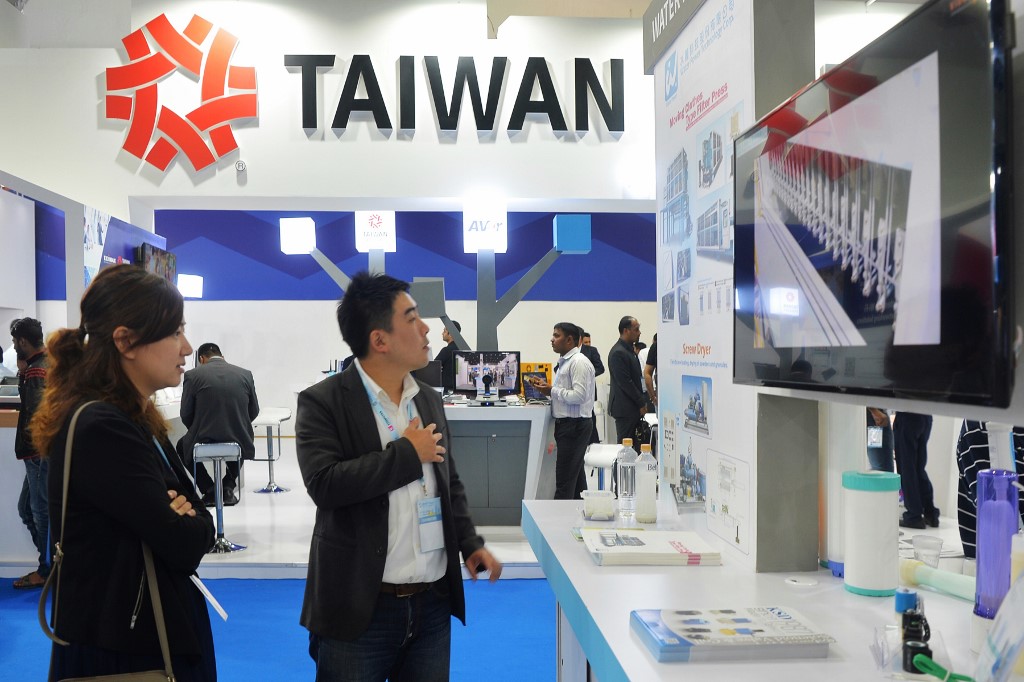World No. 5-ranked PC vendor Acer saw production lines rev back up in February, through transportation services lagged. By March the vendor’s supply chain had “recovered strongly” on its way back to normal, a company spokesperson said on Friday.
The Taiwanese firm with 2019 revenues of $2.05 billion is scanning the world now for any drops in consumer demand and has less to say. “We do not give financial guidance,” the spokesperson said.
Acer reflects a trend. Tech firms throughout Taiwan, a global hardware production center of 50 years, are recovering supply chains as China lifts coronavirus containment lockdowns and lets people return to work.
But now those developers are bracing for a sharp drop in sales to Western countries where lockdowns and forced business closures stop consumers from shopping outside their homes. The millions of job losses sparked by those closures could reduce demand in the longer term.
“The supply chain restoration in mainland China has started to gather pace since March, which is good news for Taiwanese electronics firms,” said Ma Tieying, economist with DBS Bank in Singapore. “Demand decline is now the biggest challenge facing Taiwanese electronics firms.”
Taiwan has surprised much of the world by heading off a widespread coronavirus outbreak. Health inspections since December on flights from the virus outbreak center in Wuhan, China, and contact tracing of confirmed patients have held the island’s caseload at 380 as of April 9 with no lockdowns or forced closures.
That advantage has kept people mobile and businesses open. But the island depends on tech for about one-fifth of its $654 billion economy and looks to the world’s largest markets for orders of phones, PCs, pads and peripherals. A lot of those markets are locked down, their populations facing mass job losses.
Supply chains
Nearly 99% of China’s manufacturers have “reported work resumption”, the official Xinhua News Agency reported on March 31, citing National Bureau of Statistics figures and pointing to the results of “epidemic control.”
The purchasing managers’ index for manufacturing in China entered positive above-50 territory at 52 in March, up from 35.7 in February, Xinhua reported.
Taiwanese tech hardware firms have long looked to China to source parts and assemble goods for less than it would cost at home.
China’s rebound bodes especially well for notebook developers, said Ray Wang, an analyst with Taipei-based market research firm TrendForce. Taiwanese PC builders depend on Chinese labor for upstream components, he said. China-based factories assemble, as well.
“Notebook computer original design manufacturers have returned to normal production capacity,” Wang said.
Taiwan-based Foxconn Technology, for example, reports that its production in China had bounced back enough by late March to meet seasonal demand. Foxconn, the world’s largest contract electronics assembler, runs 12 factories across nine Chinese cities, more than in any other single country. The China plants are known for making iPhones and iPads.
Semiconductor suppliers including factories can keep manufacturing even without people on the floor thanks to their “high degree of industrial automation”, TrendForce said in a March research note. Integrated circuit design firms had taken orders in advance, so their revenue is “not expected to decrease by a considerable amount” in the first quarter, it said.
Worldwide, lockdowns will knock PC production back 12% to 20% this year, Counterpoint Research forecasts.
Demand crashes
Much of the United States as well as India and parts of major Western European countries are under lockdown, a phenomenon affecting hundreds of millions as of early April. That means stores are closed and would-be consumers worried about income if they still have it.
Acer, its cross-town own-brand PC maker Asustek and Taiwan-based contract electronics makers Compal and Quanta depend largely on Western markets for shipments. Acer reports increased demand for gear that helps people work from home but did not comment on sales to offices.
With the global economy forecast to contract around 3% this year, “it’s hard to think of any bright spots,” said Gareth Leather, senior emerging Asia economist with Capital Economics in London. “This will have a huge impact on demand for electronic products, which will hit demand for semiconductors and other intermediate products really hard,” he said.
Taiwan risks a “sharp export contraction in the second and third quarters and a negative impact on its broad economy,” Ma said. The government expects 2% economic growth this year, down from 2.72% forecast in November.
A dozen Taiwanese firms make parts for iPhones, putting them at risk as phone shipments worldwide are expected to fall. Mobile phone shipments will contract 4.2% this year over 2019 because of weak demand and supply shortages, Counterpoint analyst Brady Wang said.
Weakening interest in consumer electronics in general will erode the market for semiconductors, he added. Counterpoint expects semiconductor shipments to grow 4 to 6% this year over 2019, down from an earlier forecast of 8-10%. These projections stand to impact Taiwanese contract chipmaker TSMC and chip developer MediaTek.
People sheltering at home instead of going to job sites may eventually raise demand for notebooks, Ma said.
“Due to the rise in stay-at-home economy, we could see an increase in demand for laptops, tablets and other electronics products in the global markets in the immediate term,” she said.
China’s economic rebound – ING expects its GDP to grow 4.8% year-on-year in 2020 – adds another prospect for Taiwanese exporters if people resume consumption. But their buying power wouldn’t cover the broader losses for Taiwan’s exporters, analysts fear.
China accounts for an “extremely low shipment allocation” of Taiwanese notebooks, Wang from TrendForce says. They favor instead Southeast Asia, Europe, and the United States, he said.
























